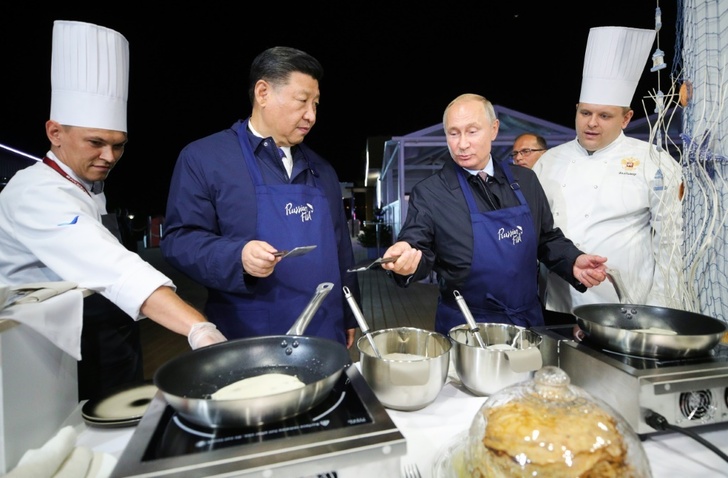Chinese President Xi Jinping begins a state visit to Russia Monday, a trip Beijing has touted as a "visit for peace" as it seeks to play mediator in Vladimir Putin's war in Ukraine.
Xi's three-day trip is his first to Russia -- a major Chinese ally -- for nearly four years, and has been described by Moscow as ushering in a "new era" in relations.
It also comes over a year after Russia's attack on its European neighbour isolated Moscow on the international stage.
The trip will be closely watched in Western capitals for signs Xi may push for peace talks between Moscow and Kyiv. The Wall Street Journal has reported Xi could also be planning his first call with Ukrainian President Volodymyr Zelensky since the war began.
Xi and Putin will have an "informal" one-on-one meeting and dinner on Monday before negotiations on Tuesday, Putin's top foreign policy adviser Yuri Ushakov told Russian news agencies.
They will sign an accord "on strengthening (the two countries') comprehensive partnership and strategic relations entering a new era", the Kremlin has said, as well as a joint declaration on Russian-Chinese economic cooperation until 2030.
Fresh from buffing its credentials as an international power broker by mediating a surprise diplomatic reconciliation between Middle East rivals Saudi Arabia and Iran, Beijing is keen to position itself as a peacemaker.
But analysts say Xi is unlikely to orchestrate a similar rapprochement in the Ukraine war given China's warm ties with its massive northern neighbour, and its relative lack of influence on the Kremlin.
China has portrayed itself as a neutral party in the Ukraine conflict, refusing to condemn Russia's invasion while rebuking the United States and NATO countries for providing military support to Kyiv.
That stance has drawn criticism from Western nations, which view Beijing as tacitly supporting Russia's aggression and providing diplomatic cover for Moscow.
They argue that China's proposals for ending the war are heavy on grand principles but light on practical solutions.
For his part, Putin on Sunday welcomed China's willingness to play a "constructive role" in ending the conflict in Ukraine, and said he had "high expectations" of his talks with Xi.
In an article written for a Chinese newspaper and published by the Kremlin, he added that Sino-Russian relations were "at the highest point" in history.
- 'True multilateralism' -
The United States has said it would oppose Chinese calls for a ceasefire during Xi's visit, saying such a move would "simply benefit Russia" by allowing it to consolidate its "conquest" of Ukraine and prepare another offensive.
China's foreign ministry has hailed Xi's trip as "a visit for peace" that aimed to "practice true multilateralism... improve global governance and make contributions to the development and progress of the world".
However, deepening Russia's international isolation, the International Criminal Court announced on Friday an arrest warrant for Putin on the war crime accusation of unlawfully deporting Ukrainian children.
In a defiant move, Putin was reported on Sunday to have visited Mariupol, his first trip to the eastern Ukrainian city since it was captured after a lengthy siege at the start of Moscow's offensive in Ukraine.
According to the Kremlin, Putin flew to Mariupol by helicopter on Saturday and took a tour of the city during which he drove a car.
- 'Old friends' -
Xi, who broke longstanding precedent to begin a third term as president this month, has referred to Putin as an "old friend".
Beijing and Moscow have also drawn closer in recent years under a "no limits" partnership that has served as a diplomatic bulwark against the West.
It emerged last week that the Chinese leader had offered Beijing as neutral ground for talks between Saudi Arabia and Iran, paving the way for a landmark restoration of ties between the two longtime arch-rivals.
China was already on good terms with Riyadh and Tehran, said Abanti Bhattacharya, an associate professor in East Asian Studies at India's University of Delhi, and negotiating a truce in the Ukraine conflict will be harder.
Despite its friendship with Moscow, China in contrast "does not have close ties with Ukraine (and maintains) a strong anti-NATO perspective", she told AFP.
mjw/oho/pbt/st
© Agence France-Presse
Your content is great. However, if any of the content contained herein violates any rights of yours, including those of copyright, please contact us immediately by e-mail at media[@]kissrpr.com.
Source: Story.KISSPR.com

